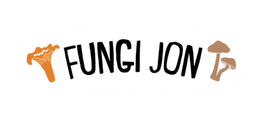
In the hidden corners of lush forests and Fungi Jon grow rooms, a captivating and enigmatic fungi species thrives – the Coral Tooth mushroom (Hericium coralloides). These delicate icicle-like formations possess a fractal nature that mirrors that of root systems and neural networks. In this blog post, we'll explore their fractal nature, unique compounds akin to Lion's Mane, how to distinguishing them from Combs Tooth mushrooms, and finally, how to elevate your culinary experience with their unique flavor profile.
These fungi are very rare to find, even amongst the most well-respected mushroom farms. Aside from their captivating beauty and delicious taste, their rarity is one of the reasons we love growing and offering them to our customers.
Fractals: Nature's Artistry in Fungi
Coral Tooth mushrooms are true marvels of fractal geometry, exhibiting intricate patterns that repeat on different scales. The cascading spines of these mushrooms create a mesmerizing display, resembling a delicate natural sculpture. The self-replicating patterns inherent in Coral Tooth mushrooms reflect the mathematical wonder of fractals, as we often see in tree roots, branches, mycelium, and even our own neural networks. This unique trait sets it apart from most mushrooms.
Lion's Mane's Cousin: Similar Compounds, Unique Potential
One of the most intriguing aspects of Coral Tooth mushrooms is their similarity in compounds to the renowned Lion's Mane mushroom (Hericium erinaceus). Both species contain bioactive compounds such as hericenones and erinacines, which have been studied for their potential cognitive and neurological benefits. Coral tooth also contain unique compounds called corallocins which are being studied for their potential benefits for nerve growth. While research is ongoing, the presence of these compounds in Coral Tooth mushrooms adds an extra layer of fascination to their already captivating nature. Perhaps it's no coincidence that Coral Tooth's appearance mimics that of our neural networks while Lion's Mane often grows in formations similar to that of a brain.
Coral Tooth vs. Combs Tooth: Deciphering the Differences
Coral Tooth is sometimes confused for it's more common relative, Combs Tooth. While Coral Tooth mushrooms and Combs Tooth mushrooms (Hericium americanum) share a resemblance, they have distinct characteristics that set them apart. The key difference lies in their spines – Coral Tooth mushrooms possess longer, cascading spines, creating a more icicle-like appearance with fractal branches, while Combs Tooth mushrooms have shorter, denser spines that resemble the teeth of a comb. Comparatively, Combs Tooth can also grow quite differently in a cultivation setting, displaying a range of colors from cream to brownish pink and more dense formation overall. It’s essential to pay attention to these subtleties when identifying these fungi.
Coral Tooth Flavor and Cooking Methods
Beyond their visual appeal and potential health benefits, Coral Tooth mushrooms offer a delightful culinary experience. When cooked, these mushrooms transform into tender morsels with a flavor profile similar to Lion's Mane. They are earthy, peppery, sweet, and act like a sponge, absorbing the surrounding flavors. Their delicate taste pairs well with various dishes, including stir-fries, pasta, risottos, and even as a topping for gourmet pizzas. We really enjoy pressing them into "steaks" or grilling them with butter, fresh herbs, and a touch of garlic.

Coral Tooth mushrooms, with their fractal beauty, potential health benefits, and distinctive culinary charm, are a true testament to the wonders of the natural world. As we delve deeper into the mysteries of these fungi, we uncover not only their intricate patterns but also their potential contributions to our well-being. From their fractal allure to their tantalizing taste, Coral Tooth mushrooms remind us of the intricate tapestry of life that surrounds us, inviting us to appreciate and explore the remarkable world of fungi.
Coral Tooth is one of our specialty varieties available throughout the year. Visit our retailers or find us at the Winter Park Farmer's Market to give them a try!
*All images and writing Copyright Fungi Jon LLC*

Leave a comment